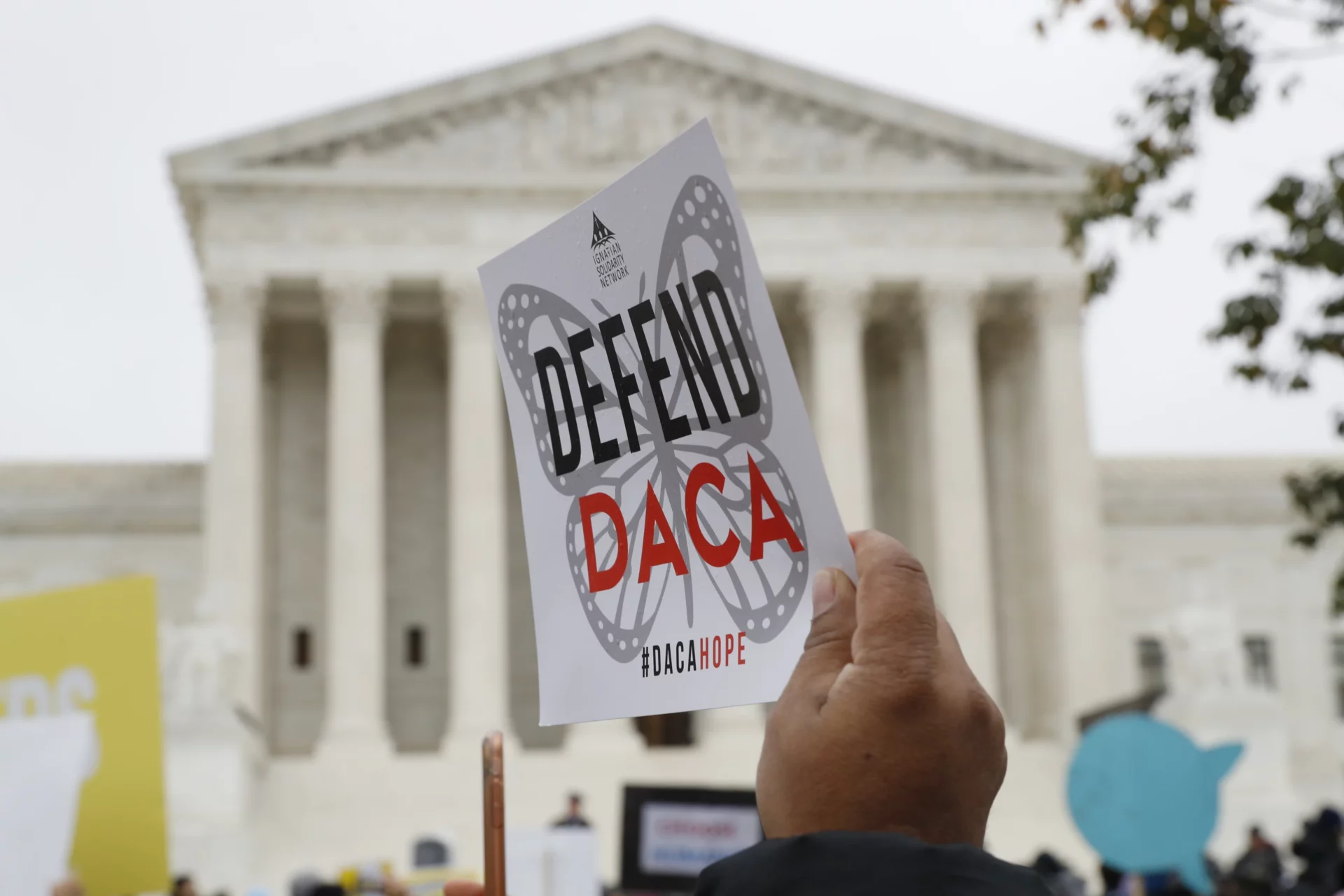
In September, a federal judge in Texas ruled the Deferred Action for Childhood Arrivals as illegal. This decision will be appealed to the Fifth Circuit Court and may later be appealed to the U.S. Supreme Court.
This is not the first time this has occurred. U.S. District Judge Andrew Hanen ruled similarly in June 2021, according to Informed Immigrant.
BYUSA Activities Coordinator and BYU alum Nadia Terrón is a DACA recipient as well as a member of the Dreamer Committee at the university.
She explained DACA recipients are able to renew their request every two years.
“USCIS will continue to accept and process DACA renewal requests and accompanying applications for employment authorization under the DACA regulations … but, per the order, not process initial DACA requests,” U.S. Citizenship and Immigration Services said.
DACA was first implemented in 2012 for immigrants who came to the U.S. as children and met a list of guidelines. They could request consideration for “deferred action,” which refers to a process where removal action against an individual can be deferred temporarily, according to the USCIS.
“With DACA you can get a job and have social security, but being undocumented, you can’t,” Terrón said.
Individuals who are currently approved for DACA can continue to request renewal, but the program is no longer accepting first-time applications. This change occurred when Donald Trump was president, Terrón said.
In the Dreamer Committee, Terrón and other members work to provide resources and hold monthly luncheons for both Dreamers and undocumented students, she explained.
The students that come to these luncheons or other meetings often complain about feeling “tied down,” wishing they could go on a study abroad, among other things, Terrón said.
Those who have DACA can request special permission to leave the country, though Terrón explained it is difficult and risky as immigration officers can decide to not allow them to reenter the U.S.
Students who are undocumented or under DACA are usually unable to go on a study abroad and they do not have access to FAFSA, she said. Undocumented individuals also have a hard time finding work, Terrón added.
“We’re limited with where we can go,” she said. “There’s almost a sense of feeling left out and not fulfilling your potential.”
You’re never enough in either culture. culturally, you live in this limbo — and adding on your citizenship status doesn’t help.
Nadia Terrón
BYU student Felipe Larrocha also shared what life is like with DACA.
“I’m always afraid of getting in trouble,” he said. “While growing up, I thought getting called to the principal’s office would mean deportation for me and my family.”
Larrocha has lived in the U.S. since he was three years old; he said he became a part of DACA the year the program was announced.
“There was hope for more action,” he said.
Though public opinion supports providing a path to citizenship, Larrocha said, Congress has often failed to listen to its constituents.
“While DACA offers deferred action on deportation, it doesn’t prevent it altogether,” he said.
Larrocha has dealt with issues within the BYU Tax and Employment offices because of his documentation status. He is also extremely careful while driving, he shared.
His dad has always warned him about not driving “too sloppy” or “looking too ethnic” when driving — Larrocha said he never wants to give a police officer a reason to pull him over.
“So if a cop pulls me over and sees my license which is legal, but looks different because I’m not a citizen — depending on the cop, on the day, on their mood, it could mean deportation for me and then possibly my family,” he said.
The new update on DACA is bringing the country closer to an “inevitable conclusion,” Larrocha said.
“A lot of my friends have been worried about when they graduate. Are they going to have a job that sponsors them, or are they going to be able to get married because this is the only path to citizenship?” BYU senior Dominique Kemp Quemba said.
Quemba was born and grew up in the U.S. but has friends who are recipients of DACA.
The thought of going back to their birth country, where the only connection is through their parents, is scary, she said. If the ruling were to stay and the DACA was removed, Quemba explained she thinks the nation would fall.
“I don’t think this country is the country it is without immigrants,” she said.
Larrocha shared what he thinks the BYU community should know about DACA recipients.
“The only thing that separates me from the average American is the mere accident of birth … I am your brother and your compatriot in every single way,” he said.
According to Terrón, what the community here can do is to be aware of the words they use because they can be hurtful; for example, using the words “illegal” or “alien” can dehumanize people.
“It is important to remember to make that connection that they’re our brothers and sisters,” she said.
If a student is under DACA or undocumented, they can go to the Office of Belonging to ask an advisor from the Multicultural Students Services or International Student and Scholar Services about getting in contact with the Dreamer Committee.
They can also visit this link to find more information and resources.




